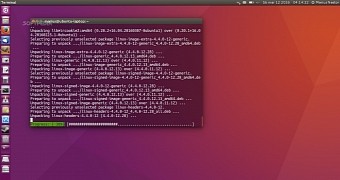It goes without saying that the Windows 7 end of support is the perfect moment for everyone to start poaching users, and unsurprisingly, Canonical, the maker of Ubuntu, is one of those trying to prove that a switch to its platform is worth the effort.
Rhys Davies, product manager at Canonical, plays the hardware card, explaining that Windows 7 users can either “buy a new computer running another operating” or simply install Ubuntu, which doesn’t require any other hardware upgrades.
Davies goes on to highlight some of the apps that make the transition from Windows 7 to Ubuntu as smoothly as possible, including Google Chrome, Spotify, Blender, and Microsoft’s very own Skype.
“With these apps, most PC users will be able to function as normal. You can continue to search the web, listen to music, watch films, talk with your friends and download new apps,” Davies says.
Linux still lagging behind Windows in terms of market share
Security is also one of the areas where Ubuntu excels, Canonical explains, and the operating system is updated “in the background to keep your computer secure by default.”
“Every line of code is thoroughly reviewed and vetted by Canonical or a member of the community. Code isn’t implemented until it works as it’s supposed to, and is checked for vulnerabilities. There are full-time employees at Canonical actively looking for bugs and vulnerabilities,” Davies notes.
Linux has long been considered a worthy alternative to Windows, but despite efforts to convince more users to make the switch, its market share has remained relatively low.
For example, data provided by NetMarketShare for the month of December 2019 indicates that Windows powered a total of 86.84% of the computers out there, followed by macOS with 11.09%. Linux was far behind with just 1.61% market share.
It remains to be seen if the market share of Linux increases after the death of Windows 7, especially as some users might refuse the upgrade to Windows 10 due to the need for additional investments in hardware.

 14 DAY TRIAL //
14 DAY TRIAL //